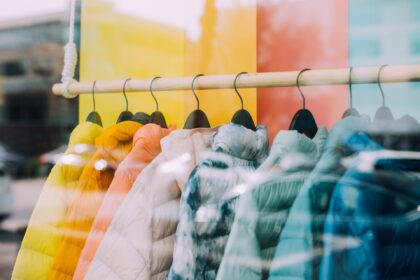We all love fashion, don’t we? We spend hours on Instagram and Pinterest updating ourselves with the latest fashion trends. And to keep up with the fashion trends we keep on buying new clothes. This is an unending process. But, do we know how the fashion industry operates?
The Fashion Industry uses about 93 billion cubic meters of water every year, which is equivalent to the amount of water consumed by 5 million people.
The Fashion Industry cuts more than 150 million trees to make fabric, every single year.
And what happens once the fashion dies? We discard the clothes. A half million tons of microplastics from discarded clothing enter the ocean each year, which is equal to 50 billion plastic bottles. Through the food chain, these microfibers are dispersing and are probably already inside of us.
I am sure, we have never given this a thought.
Nevertheless, more and more people are making conscious choices. Due to constantly accelerating pollution and global warming, people globally are becoming more concerned and aware about purchasing eco-friendly products.
Starting from t-shirts to footwear to other accessories, welcoming eco-friendly alternatives is an ideal choice. When we choose to buy an item that is natural, recycled, or made in a sustainable way, over products that have been created by harming the environment, you are actually casting a vote for a better future.
Some alternative fabrics to the devastating fast fashion are bamboo fabric, organic cotton, hemp, mylo, qmonos, pinatex, malai fabrics, deserto, cork etc.
One major downside of fast fashion is the exploitation of laborers. As fast fashion clothing is often low priced and needs to move to the retail stores at a lightning speed, the working conditions of the laborers are always overlooked. Fast fashion goods are usually manufactured in developing and overpopulated countries like Bangladesh, Vietnam, China, India etc. where the labor laws are very weak. The clothes we shop from from brands like H&M, Zara etc. is actually a byproduct of immense exploitation of the workforce.
While the Gen Z and Millenials are inclined to use their clothes only one or twice, fast fashion is their first choice. Extremely cheap clothing that can be disposed of quickly. Fast fashion is also known as disposable Fashion, for a reason. Apart from its dangerous impact on the environment, this is leading to a “throw-away” consumer mentality. Our consumption of goods is so high, that we are absolutely unable to fathom the consequences of our choices. I have already written a blog about the situation of landfills, due to excessive waste generated from unwarranted human habits. Climate change, ecosystem services degradation and limitations on natural resources threaten the lives of millions today and more dangerously for the next generation.
Governments as well as Brands through their marketing gimmicks continue to encourage the consumers to desire items from childhood onwards, and consumerism is the main economic strategy for governments trying to climb out of recession.
Meanwhile, the excessive consumption habit has spread throughout the world and is sparing no one. The poor countries will pay the price for the actions of the rich. The rich countries which have for years spread the wild fire of consumerism, at least now, need to wake up and smell the coffee.
In nature, ‘resources’ are cycled – for example, water taken up by plants is eaten by animals that breathe out water vapor, returning the water to the soil for the plants by way of rain. Nothing is lost. But the scale with which we humans are using resources is too rapid for natural systems to manage. Microorganisms, for example, can degrade our waste, but not at a rate that matches our production. Likewise, trees and plants can take in our carbon dioxide, but not fast enough.
As a content creator, I attempt to socially educate people. I urge everyone to not see happiness through excessive consumption but instead in trying to restore the natural balance of things. This is the only planet we have. We may keep progressing and developing, but we will never be in a position to create an alternative planet for human inhabitation. This is not just a planet. It is our home. It is our last and only hope. Today our home needs us. Let us all pledge to protect our mother earth, which for centuries has been our savior.









